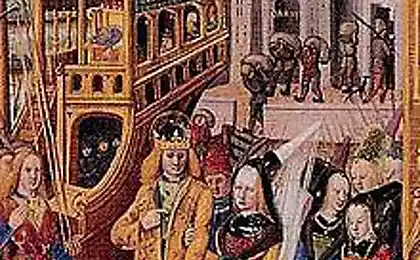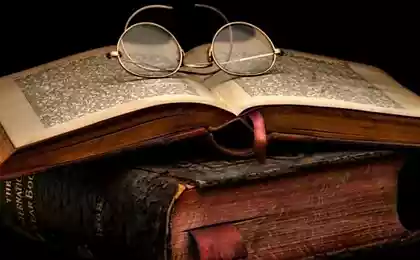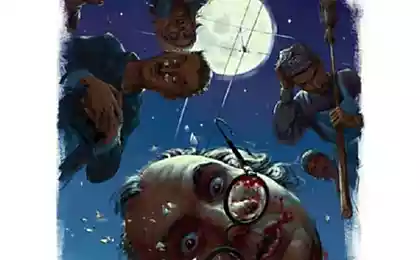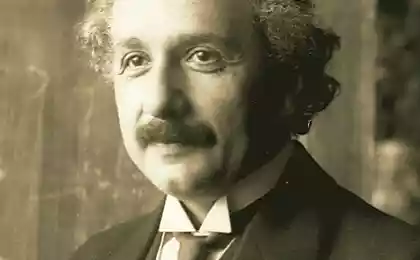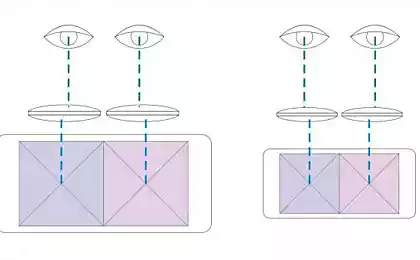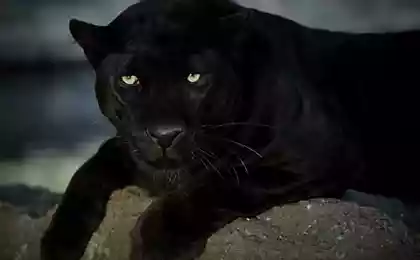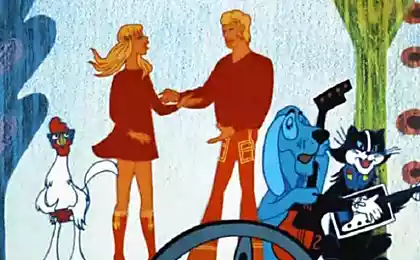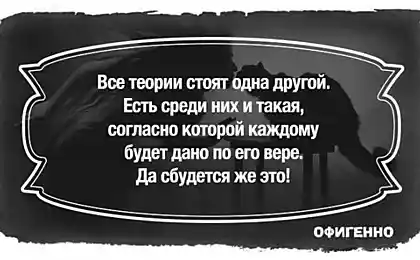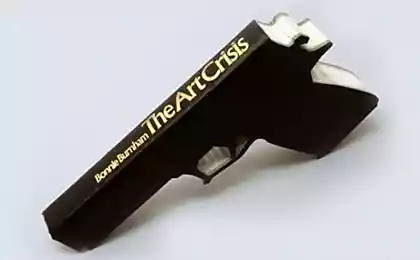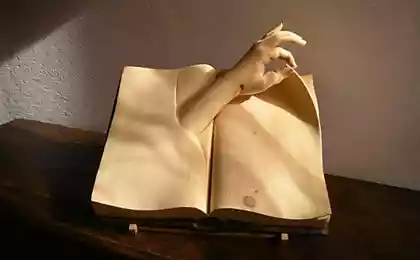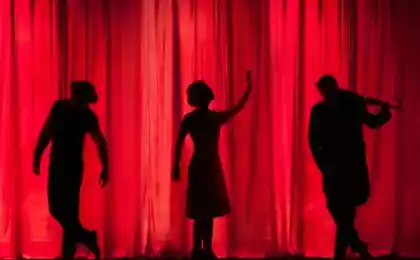1796
"Master and Margarita". Life, the book, the screen
Great book - a great movie? It is impossible to read and not for what to watch? In Bulgakov's works have only violent fans and implacable enemies. No one is indifferent. The same thing happens with the main adaptations of the master - a novel about Marguerite and Satan. We decided to recall all of them
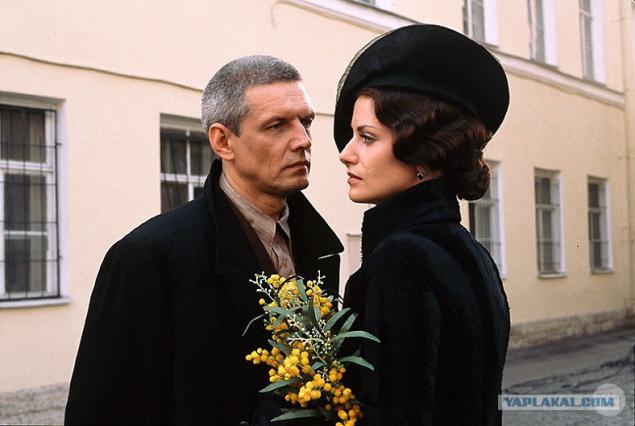
About the novel
Mikhail Bulgakov began work on "Master and Margarita" in the 1928-29 year. Initially, there was no margaritas, and the name varied: "Black Magician", "Hoof engineer", "The Juggler with the hoof", "Son of B.", "tour". However, the first edition of "The Master and Margarita" has been destroyed by the author March 18, 1930 after the banning of the play "The Cabal of Hypocrites." About this Bulgakov said in a letter to the government: "And I personally, with his hands and threw it into the stove draft of the novel about the devil ...».
Returned to work Mikhail Bulgakov in just a few years, and the third edition - is "The Master and Margarita", dates back to 1936 year.
The novel "The Master and Margarita" in the author's life has not been published. He first came to light only in 1966, 26 years after the death of Bulgakov, with cuts, in an abbreviated version of the coffee.
Until the official publication of the "Master .." spread in hand reprinted copies. The writer's wife Elena Bulgakov during all these years kept the manuscript.
As preserved in the archive numerous extracts from the book can be seen that the sources of information on demonology Bulgakov served on this theme article Encyclopedic Dictionary Brockhaus and Efron, Mikhail Orlov book "The history of human intercourse with the Devil" (1904) and Alexander Amfiteatrov book "The Devil in the way of life, legend and literature of the Middle Ages. "
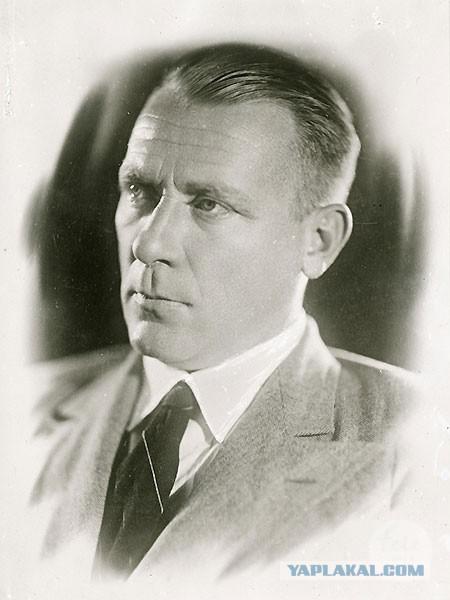
A collection of interesting facts about the novel
Stalin (in his time who studied in the seminary) called Bulgakov in 1930, and between them was a telephone conversation (the content of which is known, in particular from the memoirs of E. S. Bulgakov). In the penultimate edition of the novel Voland utters the words: "He has a manly face, he does the right thing, and in general, it's over here. It's time! "- Related to the pilot, the character, and then expelled from the novel. Perhaps these words refer to Stalin.
Despite the mass repressions of 1937-1938, nor Bulgakov, nor any of his family members were not arrested.
In the first edition of the novel contained (now almost completely lost) a detailed description will "stranger" (Voland) length of 15 (!) Pages of manuscript, as well as open the first "Yershalaim" chapter detailed description of the meeting of the Sanhedrin, which was condemned by Yeshua.
Voland in earlier editions of the novel named Astaroth. However, later it was replaced by the name - probably due to the fact that the name "Astaroth" is associated with a particular demon of the same name, different from Satan.
According to the writer's widow, Elena Sergeevna, Bulgakov's last words on the novel "The Master and Margarita" before he died were: "To know ... To know».
The film company Steyndorfa Scott, Stone Village Production bought the film rights to the novel Sergei Shilovsky grandson E. Bulgakov, called «Master & Margarita». The role of Master and Margarita can play Johnny Depp and Angelina Jolie.
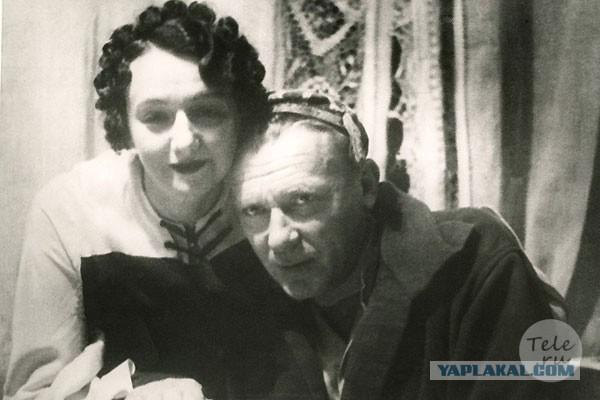
Adaptation of the novel
It is known that many Russian directors have sought to film "Master and Margarita", but for a long time nobody has been able to do it. Remove the picture based on the novel at the time wanted to Rolan Bykov, Igor Talankin, Gennady shelves, Eldar Ryazanov, Elem Klimov. As a result of the first filmmakers who filmed "a novel about the devil," was the Polish director Andrzej Wajda.
1. Pilate and Others (TV movie, Germany, 1971, 90 min.) - Dir. Andrzej Wajda.
This is a film by Polish director Andrzej Wajda based on "biblical" scenes of the novel by Mikhail Bulgakov "The Master and Margarita", filmed for Channel Two television in Germany.
In Bulgakov's novel "Master and Margarita" two alternating layers of time: XX century and New Testament times. In the film adaptation of Wajda is only present line of Pilate and Yeshua Ha-but it was moved to the present. The film contains a lot of interesting scenario finds. So, Matthew the Apostle (Daniel Olbrychski) looks modern television journalist, did a report from Calvary, and Judas Iscariot (Jerzy Zelnik) brings to Yeshua by a payphone; When he hangs up, drop out of the machine thirty pieces of silver. His way of the cross Ha-passes through the streets of Frankfurt.
From: film at one time very much. Olbrychski great!
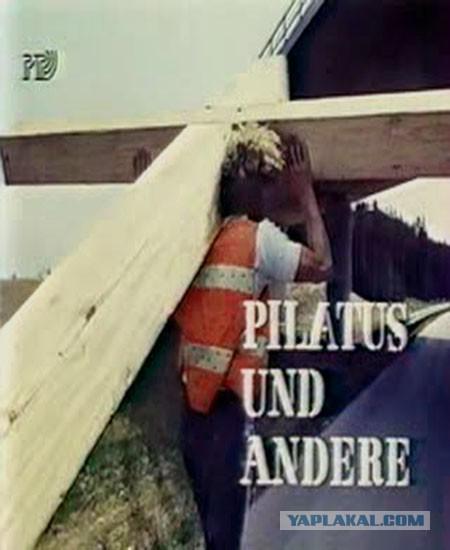
2. The Master and Margarita (Italy, Yugoslavia, 1972, 95 min.) - Dir. Alexander Petrovich.
The first film adaptation of the brilliant novel by Mikhail Bulgakov's "Master and Margarita", filmed Alexander Petrovich on an abbreviated version of the novel, published in the 66th volume in the journal "Moscow". The director is not just aimed to transfer the novel on film language, and tried to rethink it. Managed it or not - to judge us. It seems to me to convey the atmosphere of Moscow 30s Petrovich succeeded better than anyone else in the world cinema. As for the script, and the author's thoughts: the director is trying to develop the idea of the author's lack of freedom in a socialist country. Relevance to Bulgakov himself.
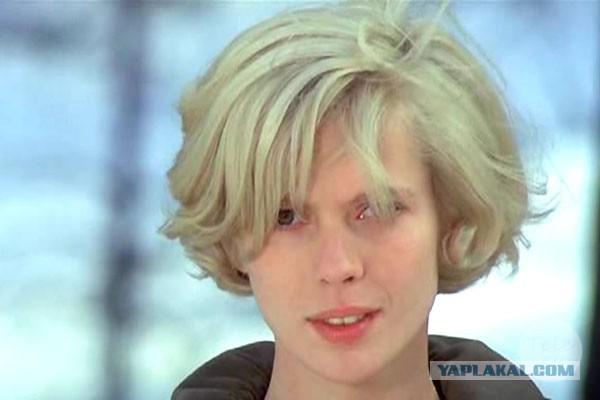

About the novel
Mikhail Bulgakov began work on "Master and Margarita" in the 1928-29 year. Initially, there was no margaritas, and the name varied: "Black Magician", "Hoof engineer", "The Juggler with the hoof", "Son of B.", "tour". However, the first edition of "The Master and Margarita" has been destroyed by the author March 18, 1930 after the banning of the play "The Cabal of Hypocrites." About this Bulgakov said in a letter to the government: "And I personally, with his hands and threw it into the stove draft of the novel about the devil ...».
Returned to work Mikhail Bulgakov in just a few years, and the third edition - is "The Master and Margarita", dates back to 1936 year.
The novel "The Master and Margarita" in the author's life has not been published. He first came to light only in 1966, 26 years after the death of Bulgakov, with cuts, in an abbreviated version of the coffee.
Until the official publication of the "Master .." spread in hand reprinted copies. The writer's wife Elena Bulgakov during all these years kept the manuscript.
As preserved in the archive numerous extracts from the book can be seen that the sources of information on demonology Bulgakov served on this theme article Encyclopedic Dictionary Brockhaus and Efron, Mikhail Orlov book "The history of human intercourse with the Devil" (1904) and Alexander Amfiteatrov book "The Devil in the way of life, legend and literature of the Middle Ages. "

A collection of interesting facts about the novel
Stalin (in his time who studied in the seminary) called Bulgakov in 1930, and between them was a telephone conversation (the content of which is known, in particular from the memoirs of E. S. Bulgakov). In the penultimate edition of the novel Voland utters the words: "He has a manly face, he does the right thing, and in general, it's over here. It's time! "- Related to the pilot, the character, and then expelled from the novel. Perhaps these words refer to Stalin.
Despite the mass repressions of 1937-1938, nor Bulgakov, nor any of his family members were not arrested.
In the first edition of the novel contained (now almost completely lost) a detailed description will "stranger" (Voland) length of 15 (!) Pages of manuscript, as well as open the first "Yershalaim" chapter detailed description of the meeting of the Sanhedrin, which was condemned by Yeshua.
Voland in earlier editions of the novel named Astaroth. However, later it was replaced by the name - probably due to the fact that the name "Astaroth" is associated with a particular demon of the same name, different from Satan.
According to the writer's widow, Elena Sergeevna, Bulgakov's last words on the novel "The Master and Margarita" before he died were: "To know ... To know».
The film company Steyndorfa Scott, Stone Village Production bought the film rights to the novel Sergei Shilovsky grandson E. Bulgakov, called «Master & Margarita». The role of Master and Margarita can play Johnny Depp and Angelina Jolie.

Adaptation of the novel
It is known that many Russian directors have sought to film "Master and Margarita", but for a long time nobody has been able to do it. Remove the picture based on the novel at the time wanted to Rolan Bykov, Igor Talankin, Gennady shelves, Eldar Ryazanov, Elem Klimov. As a result of the first filmmakers who filmed "a novel about the devil," was the Polish director Andrzej Wajda.
1. Pilate and Others (TV movie, Germany, 1971, 90 min.) - Dir. Andrzej Wajda.
This is a film by Polish director Andrzej Wajda based on "biblical" scenes of the novel by Mikhail Bulgakov "The Master and Margarita", filmed for Channel Two television in Germany.
In Bulgakov's novel "Master and Margarita" two alternating layers of time: XX century and New Testament times. In the film adaptation of Wajda is only present line of Pilate and Yeshua Ha-but it was moved to the present. The film contains a lot of interesting scenario finds. So, Matthew the Apostle (Daniel Olbrychski) looks modern television journalist, did a report from Calvary, and Judas Iscariot (Jerzy Zelnik) brings to Yeshua by a payphone; When he hangs up, drop out of the machine thirty pieces of silver. His way of the cross Ha-passes through the streets of Frankfurt.
From: film at one time very much. Olbrychski great!

2. The Master and Margarita (Italy, Yugoslavia, 1972, 95 min.) - Dir. Alexander Petrovich.
The first film adaptation of the brilliant novel by Mikhail Bulgakov's "Master and Margarita", filmed Alexander Petrovich on an abbreviated version of the novel, published in the 66th volume in the journal "Moscow". The director is not just aimed to transfer the novel on film language, and tried to rethink it. Managed it or not - to judge us. It seems to me to convey the atmosphere of Moscow 30s Petrovich succeeded better than anyone else in the world cinema. As for the script, and the author's thoughts: the director is trying to develop the idea of the author's lack of freedom in a socialist country. Relevance to Bulgakov himself.

